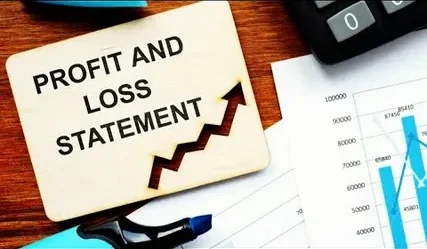Lending Solutions for Every Business
FIX and FLIP
Whether you’re stepping into the exciting world of house flipping or are a seasoned real estate investor, ADM Financial Group is your trusted partner for hard money rehab loans in New York to Los Angeles and beyond.
We specialize in providing tailored financing solutions to help you secure the funding you need for your next property-flipping project. With our deep expertise and extensive resources, we’re equipped to meet the diverse needs of investors at any experience level.
From first-time flippers to experienced professionals, we’re committed to making your real estate investment journey smooth and successful.
How Credit Score and Experience Impact Your Potential To Get Fix-and-Flip Loans
In real estate, leverage is shaped by your credit score and experience. For new investors with limited experience (fewer than three flips in three years) and less-than-stellar credit, hard money lenders often reduce leverage, requiring higher down payments.
Better Credit: New investors with strong credit can qualify for 80% LTV, reducing the down payment to $50,000.
Experienced investors (three flips in three years) with excellent credit often receive the best terms, including up to 90% LTV (a $25,000 down payment) or, in some states, 100% LTV of the purchase price. Renovation costs are typically covered up to 75% of the ARV.
Understanding these factors helps you make informed decisions and maximize success in the competitive world of property flipping.


Private Lenders vs. Institutional Lenders in Real Estate: How Credit Scores Play a Role
Real estate experts often claim that a great deal can make your credit score less critical, particularly when working with private lenders. Private lenders are typically individuals, such as family or friends, who fund deals based on your proven track record rather than focusing on credit. These lenders might draw from retirement accounts, cash value life insurance, or personal savings, creating a relationship-driven lending process that relies on trust and your history of success.
On the other hand, institutional lenders—including banks and hard money lenders—place significant weight on your credit score. This factor often determines their willingness to finance your project, no matter how profitable the deal appears. Credit requirements can shift with market conditions, and a lower score may result in reduced leverage and higher upfront costs. If your credit score needs improvement, it’s smart to start addressing it early using resources like ADM Financial Group, which can help strengthen your financial standing.
What are the requirements?
Documents You Need for a Fix-and-Flip Loan
Sales Contract
Corporate Documents (EIN, Articles of Organization, Operating Agreement)
Last Two Years of Federal Tax Returns (depends on the lender behind the loan)
Three Months of Bank Statements (account must show enough for your down payment and closing costs)
Application
Experience Sheet
Renovation Budget

RENTALS
Turnkey Rental Financing Solutions
Explore the potential of turnkey rental financing for residential and commercial properties across the nation. We offer flexible options for 1-4 unit residential investment properties, multifamily apartments, mix-used properties, offices, and warehouses, providing hassle-free financing with competitive rates tailored to your needs. Maximize your investment opportunities with our trusted Pittsburgh owned nationwide commercial mortgage brokerage.
Tax Returns: A lender requires a complete financial history of the last 3 years, including both personal and business federal tax returns. While some offer only bank-statement lending, submitting tax returns can enhance your chances of approval.
Pay Stubs: If you have a job, lenders may request your last three pay stubs to verify your income.
Bank Statements: Providing the last three months of personal and business bank statements is essential to confirm available funds for the down payment and closing costs.
Corporate Documents: Present your EIN SS-4 Form, Articles of Organization, and Operating Agreement. If any partner owns 20% or more of the business, their documents are also necessary.
Personal Financial Statement: Many long-term lenders require a Personal Financial Statement (PFS) from each borrower to evaluate assets, debt, income, and net worth.
Application: This initiates the process, so ensure you complete the application thoroughly to avoid any delay or rejection by the lender.
Understanding Rental Loans

What Can I Use Rental Loans For?
Location
Where the property is located is very important. Most lenders want properties to be in urban and suburban areas. Properties in rural areas are very difficult to finance. Not impossible, just more difficult.
Property Type
Rental loans provide long-term financing options for a diverse range of commercial properties, including office spaces, retail stores, mix-use, apartment buildings, single family and 2-4 unit investment property and more.
Property Value
Nearly all lenders have a minimum and maximum loan amount. We offer a $100,000 minimum, while our maximum can extend into the tens of millions depending on the property value and qualifications of the borrower.
Leases
The lender will always want to see a copy of the current lease agreements. All lease agreements must be signed. This will show the cash flow of the property and will be verified by the appraiser.
Property Tax Return
Depending on the type of property, a lender may want to see the federal tax returns on the property for the last three years. This will show how the property performs, capital improvements that may or may not have been done, overall cash flow, and property expenses.


Profit & Loss Statement
This will be a report of the property’s year-to-date performance, designed to be sent to a lender for evaluation. It allows the lenders to assess the property’s financial health and profitability. This document plays a crucial role in the lender’s decision-making process.
Location Appraisal
The appraisal determines the property’s true value. If it aligns with the purchase price, the loan process proceeds as planned. However, if the property appraises below the purchase price, adjustments may be needed, potentially requiring additional funds at closing.

What Is a Commercial Line of Credit?
A commercial line of credit is a type of financing that provides businesses with access to funds on an ongoing basis.
It is a flexible source of credit that enables businesses to manage their cash flow, inventory, or purchasing equipment.
This type of financing is essential for businesses to maintain liquidity and grow their operations.
Eligibility for Commercial Lines of Credit
To be eligible for a commercial line of credit, there are several factors that a lender may consider, including:
Business Financials
Lenders use financial statements to evaluate a business’s financial stability and credit history.
They want to have a guarantee that businesses have the financial capacity to repay the loan, which is why they closely examine financial statements before approving a commercial line of credit.
Business owners should ensure that their financial statements accurately reflect their business’s financial health and profitability to increase their chances of obtaining a commercial line of credit.
Credit Score
Lenders use the credit score as an indicator of the business owner’s ability to repay the loan. A low credit score can result in higher interest rates or even a denial of the application.
Therefore, it is essential for business owners to maintain a good credit score to increase their chances of obtaining financing and access to credit.

Time in Business
A business’s time in operation is an important factor that lenders consider when evaluating eligibility for a commercial line of credit. Lenders generally view businesses that have been operating for at least a year or two as less risky.
Still, the requirement for a minimum amount of time in business may vary depending on the lender and the type of credit. Newer businesses may need to provide additional documentation and financial information to demonstrate their creditworthiness to lenders.
Collateral
Collateral is an essential factor that lenders consider when evaluating a business’s eligibility for a commercial line of credit. It provides lenders with additional security and ensures that they can recover their investment if the borrower defaults on the loan.
LINES OF CREDIT
Businesses should carefully consider the collateral requirements before applying for a commercial line of credit and ensure that they can meet the lender’s requirements to avoid the risk of losing their assets.
Types of Commercial Lines of Credit
There are two main types of commercial lines of credit: secured and unsecured.
Secured Commercial Line of Credit
This type of line of credit requires collateral to be put up as security against the loan. If the borrower defaults, the lender can seize the collateral to recover the funds.
Secured lines of credit are typically easier to obtain than unsecured lines, as they present less risk to the lender.
However, businesses must carefully evaluate the risks and benefits of providing collateral before applying for a secured line of credit.

Unsecured Commercial Line of Credit
This type of line of credit does not require collateral to be put up as security. Unsecured lines of credit are typically more difficult to obtain than secured lines, as they present more risk to the lender.
However, for businesses with established credit histories and strong financials, an unsecured line of credit can be an attractive option to access financing.
Revolving Line of Credit
A revolving line of credit is a flexible financing option that is similar to a credit card. The borrower is given a credit limit that can be used as needed, and the funds can be repaid and borrowed again repeatedly.
Revolving lines of credit offer flexibility in managing cash flow and can be an attractive option for businesses with fluctuating cash flow needs.
However, businesses must be careful not to rely too heavily on revolving lines of credit to avoid falling into a cycle of debt.
Non-Revolving Line of Credit
A non-revolving line of credit is a commercial line of credit similar to a traditional loan. The borrower receives a fixed amount of funds upfront and repays it over a set period of time.
Non-revolving lines of credit are suitable for businesses that need a lump sum of funds for a specific purpose but may not be suitable for businesses that need ongoing access to funds.

Types of Commercial Lines of Credit
Benefits of Commercial Lines of Credit
There are several benefits of a commercial line of credit, including:
Flexibility and Convenience of Borrowing. A commercial line of credit provides businesses with access to funds on an ongoing basis. It enables businesses to manage their cash flow and expenses as they arise.
Lower Interest Rates Compared to Credit Cards or Other Loans. Commercial lines of credit typically have lower interest rates than credit cards or other loans, making them a more cost-effective way to borrow money.
Opportunity to Establish a Credit History for Your Business. By obtaining a commercial line of credit and making timely payments, businesses can establish a positive credit history for their business.
Risks and Considerations of Commercial Lines of Credit
Before obtaining a commercial line of credit, there are several risks and considerations that a business owner should be aware of, including:
Default Risk. If a business is unable to repay the line of credit, it may face severe consequences, including damage to its credit rating or legal action.
Collateral Requirements. If a lender requires collateral to secure the line of credit, the business owner must understand the risks involved in putting their assets at risk.

High Interest Rates and Fees. The interest rates and fees associated with a commercial line of credit may be higher than other types of financing, resulting in higher costs for the business.
Benefits and Risks Associated With Commercial Lines of Credit
Costs Associated With Commercial Lines of Credit
There are several costs associated with obtaining a commercial line of credit, including:
Interest Rates and Fees. The interest rate and fees associated with a commercial line of credit may vary depending on the lender and the terms of the loan. It is essential to review the terms and conditions of the loan before accepting the offer.
Repayment Terms and Conditions. The repayment terms and conditions of a commercial line of credit may vary depending on the lender and the terms of the loan.
It is essential to review the terms and conditions of the loan before accepting the offer.

How to Apply for a Commercial Line of Credit
Applying for a commercial line of credit involves several steps, including:
Preparing for the Application Process
Before applying for a commercial line of credit, a business owner should ensure they have all the necessary documentation and information required to complete the application process. This may include financial statements, tax returns, and business plans.
Documents Required for the Application
The specific documents required may vary depending on the lender but typically include financial statements, tax returns, business plans, and bank statements.
Steps Involved in the Application Process
The application process typically involves submitting an application, providing documentation, and undergoing a credit check. The lender may also require a personal guarantee or collateral to secure the line of credit.
Conclusion
A commercial line of credit is a flexible and convenient financing option for businesses looking to manage their cash flow, inventory, or purchasing equipment.
There are several commercial lines of credit types, including secured, unsecured, revolving, and non-revolving. The benefits of a commercial line of credit include lower interest rates, flexibility, and the opportunity to establish a credit history for the business.
ADM Financial Group offers free consultations for this type on loan as well as other loans or credit alternatives, especially when purchasing a commercial property.
Commercial Line of Credit
FAQs
A commercial line of credit is a type of financing that provides businesses with access to funds on an ongoing basis. It allows businesses to manage their cash flow, inventory, or purchasing equipment.
Eligibility requirements for a commercial line of credit may vary depending on the lender but typically include factors such as business financials, credit score, time in business, and collateral.
The benefits of a commercial line of credit include lower interest rates, flexibility, and the opportunity to establish a credit history for the business.
To apply for a commercial line of credit, a business owner must prepare the necessary documentation, including financial statements, tax returns, and business plans. You will then submit an application, provide documentation, and undergo a credit check.
Credit Scores and Reports with Monitoring | SmartCredit
Get on top of your Credit Scores and Reports & take action directly with your creditors through our patented online system. Start a free trial today!
